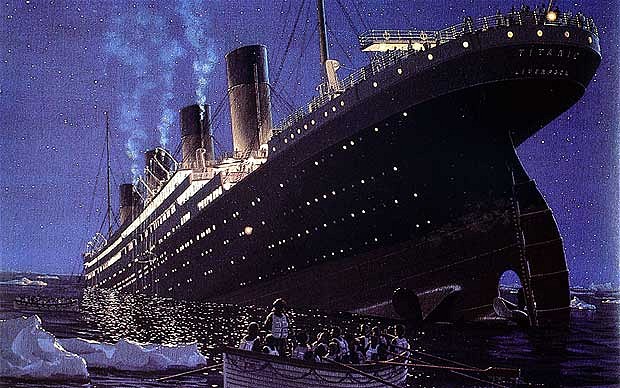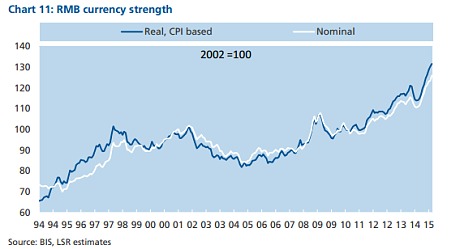Asset protection
 …..And One Of The Most Tragic Images You Will Ever See
…..And One Of The Most Tragic Images You Will Ever See
What the Godfather of newsletter writers, 90-year-old Russell is telling his subscribers to do right now as people continue to digest breaking news out of Greece and around the world. He discusses the war against deflation, gold, silver, and the horrors of war.
….read and view it all HERE

 Our beef with our own generation is not that it failed, but that it succeeded too well.
Our beef with our own generation is not that it failed, but that it succeeded too well.
It took control of government and used it like an ape uses a rock – to crack open a nut.
But we’ll come back to that in a minute…
The Dow Takes a Dive
First, the Dow dropped 190 points yesterday – or 1%. It is threatening to close below 18,000 for the first time in almost three weeks. We’ll wait to find out.
Yesterday, a London-based magazine and a TV station interviewed us. Both asked if we were “pessimistic.”
“Of course not,” we replied. “We expect today’s financial system to fall apart in a terrible crash and depression. But we’re looking forward to it.”
This was not exactly the answer they were looking for… And there’s not enough time in an interview to explain why this view makes any sense at all. The audience must have thought we had lost our mind.
We also had a meeting with our old friend and editor of the Gloom, Boom & Doom Report Marc Faber yesterday. He helped make sense of our “pessimism.”
“The system is corrupt,” he said. “The government. The banks. The central banks. Big business.”
People always use their wealth and power to try to protect themselves. Sometimes they use it to take wealth and power away from others, too.
That’s corruption.
Of course, that’s what government was designed for: to allow one group to rob another. If the elite could take no advantage from it, why would they bother with government at all?
Dirty Work
We baby boomers took over in the 1980s. We have been in charge ever since.
Since then, we’ve corrupted the economy, the markets, and government.
By the 1970s, some of the dirty work was already done: The Nixon administration had ditched honest money. Now, the coast was clear. We could use this new credit-based money to pervert the whole shebang.
The U.S. government used to be limited. That was the point of the Constitution – to restrict the feds’ power.
Much of the restraint was financial. States were forbidden from making anything but gold and silver legal “tender.”
But there was restraint when it came to foreign wars, too. Congress was supposed to bear the sole power not only to put troops in the field, but also to raise the money to pay for them.
Today, the Constitution is in a musty drawer somewhere; not even the Supreme Court justices can find it.
The new money, along with a sans souci attitude toward debt, changed everything. Now, the feds can get away with anything – including murder – if they put the right spin on it.
Pretend to be fighting terrorists, drugs, cancer, racism, global warming, lack of consumer demand, or tobacco use and nobody asks questions.
Capitalism No More
The Reagan administration talked about balanced budgets and fiscal conservatism. But within months of arriving in Washington, the Republican Party rolled over.
Since then, it’s scarcely ever met a zombie it didn’t like – especially if he had a gun in his hand. Wars overseas. Wars at home. Every fight cost money and every one was a loser.
But not for everyone…
And now capitalism is no more – not in the 50 states at least. Now we have cronyism, in which businesses angle for favors from the feds.
Why the switch?
It is more profitable.
Another old friend, Strategic Investment editor Jim Davidson, described the payoff:
The Sunlight Foundation reports on research it undertook between 2007 and 2012, tracking 200 of America’s most politically active corporations:
“After examining 14 million records, including data on campaign contributions, lobbying expenditures, federal budget allocations and spending, we found that, on average, for every dollar spent on influencing politics, the nation’s most politically active corporations received $760 from the government. The $4.4 trillion total represents two-thirds of the $6.5 trillion that individual taxpayers paid into the federal treasury.”
“That translates to a 75,900% rate of return,” says Jim.
Real capitalism means taking real risks… working hard… getting lucky… and discovering the future.
Cronyism is safer and surer. It favors old, established businesses, the ones that can afford expensive lobbyists.
It doesn’t lead to wealth creation or progress, but it is easier for politicians and central planners to work with. They know where the money is!
And they can plan for the past; it’s the future they have trouble with.
But wait… We came to praise our fellow boomers, not to bury them in scorn.
Have we nothing nice to say about our own generation?
Regards,
Bill

 The world authorities have run out of ammunition as rates remain stuck at zero. They have no margin for error as economy falters
The world authorities have run out of ammunition as rates remain stuck at zero. They have no margin for error as economy falters
The world economy is disturbingly close to stall speed. The United Nations has cut its global growth forecast for this year to 2.8pc, the latest of the multinational bodies to retreat.
We are not yet in the danger zone but this pace is only slightly above the 2.5pc rate that used to be regarded as a recession for the international system as a whole.
It leaves a thin safety buffer against any economic shock – most potently if China abandons its crawling dollar peg and resorts to ‘beggar-thy-neighbour’ policies, transmitting a further deflationary shock across the global economy.

The longer this soggy patch drags on, the greater the risk that the six-year….continue reading HERE

 One way or another the crisis in Greece is highly likely to come to a head in June.
One way or another the crisis in Greece is highly likely to come to a head in June.
Greek finances are in such sorry shape it needs a third bailout or it will be unable to meet payment obligations in August. And unless an agreement in June is reached to unleash more funds, Greece will not make it to August.
Today we learn, Interior minister warns Greece will default on June IMF repayment.
Greece has again threatened to default on loan repayments due to the International Monetary Fund, saying it will be unable to meet pension and wage bills in June and also reimburse €1.6bn owed to the IMF without a bailout deal with creditors.
“The money won’t be given … It isn’t there to be given,” Nikos Voutsis, the interior minister, told the Greek television station Mega.
He claimed the EU and IMF were pressuring Greece to make unacceptable concessions in the current bailout talks in return for unlocking €7.2bn of aid frozen since last year.
Predicting when Athens will run out of cash has proven a fraught affair for eurozone officials, who have been bracing for default since March.
Given the repeated warnings from Greek officials that bankruptcy is imminent, some officials have begun to disregard such threats, believing Athens is now using them as a negotiating tactic.
But a senior Greek official with knowledge of the government’s funding position confirmed that Athens would be unable to make the IMF payments, which fall due in four separate instalments of more than €300m each between June 5 and June 19, unless a deal is struck.
“We won’t accept blackmail that says it’s either liquidity with a memorandum [the Greek term for a bailout programme] or bankruptcy”, Mr Voutsis said.
The government has ruled out a domestic default on payment obligations to Greece’s 2.9m pensioners and 600,000 public sector workers, saying they have first claim on the country’s shrinking resources.
People who have spoken to Mr Tsipras say he is in a dour mood and willing to acknowledge the serious risk of an accident in coming weeks.
One official in contact with the prime minister said: “The negotiations are going badly. Germany is playing hard. Even Merkel isn’t as open to helping as before.”
Recall that Greece was only able to make the May IMF payment by borrowing money from the IMF.
That emergency credit line has been entirely used up. For details, please see Greece Empties IMF Reserve Account to Pay IMF; Liquidity “Terribly Urgent” Says Finance Minister.
Although we have seen crisis after crisis come and go with various kick-the can mechanisms, at some point there is no can left to kick. Is this finally the time?
‘Catastrophic’ Eurozone Rupture
The Telegraph reports Greece to Miss IMF payments Amid Fears of ‘Catastrophic’ Eurozone Rupture.
Finance minister [Yanis Varoufakis] said that the Syriza-led Greek government has now “made enormous strides at reaching a deal”, and that it is now up to the ECB, IMF and EU “to do their bit” and “meet us one-quarter of the way”.
One possible alternative if talks do not progress is that Greece would leave the common currency and return to the drachma. This would be “catastrophic”, Mr Varoufakis warned, and not just for Greece itself.
“Whatever some analysts are saying about firewalls, these firewalls won’t last long once you put and infuse into people’s minds, into investors’ minds, that the eurozone is not indivisible,” he added.
Mr Varoufakis’ and Mr Voutsis’ words followed a declaration from Alexis Tsipras, the Greek prime minister, that bargaining with Greece’s creditors would soon come to a close.
“Rest assured that in this negotiation we will not accept humiliating terms,” Mr Tsipras told Syriza’s central committee. “The overwhelming majority of Greek people want a solution and not just an agreement … it supports the government in this tough negotiation,” he added.
For Greece itself, using the common currency is now like using a “foreign currency”, and any exit from the eurozone would be “a disaster”, Mr Varoufakis said.
He continued: “Trying to get out of it is tantamount to announcing a devaluation 10 months in advanced.” Economists warn that if Greece were to leave the euro area, it could trigger huge levels of capital flight.
In turn, Greece would almost certainly have to resort to capital controls in order to stem the tide of money out of the domestic economy.
Ratings agency Moody’s has warned that there is now a “high likelihood” of such controls, which might be necessary to keep the Greek financial system alive. An estimated €30bn has been withdrawn from the country’s banks since snap elections were called in December 2014.
Mr Varoufakis said that at some point the Greek government would have to make a choice between paying salaries and paying international creditors.
Greek Choice Same As It’s Always Been
The choice Greece faces now is precisely the same choice four years ago: Whom to pay.
Greek citizens overwhelmingly want to stay on the euro, but they do not want further cuts in pensions accompanied by higher taxes and more layoffs.
So which is it? By fighting to retain pensions, Tsipras will at least have some cover if and when Greece returns to the Drachma.
Meanwhile, the smart money has already left. Those with euro deposits in Greek banks above and beyond what is needed to make immediate payments are fools.
I have been pounding the table for months warning Greek citizens to pull their money out. This may be the last chance.

 The smart money, the kind that moves first at the slightest sign of trouble, is on the move again.
The smart money, the kind that moves first at the slightest sign of trouble, is on the move again.
In a market I’ve previously reported on. A market I call the “off-the-grid” market.
I can’t say I blame these savvy investors. If I had the kind of money we’re talking about, I’d be doing the same thing. Getting off the grid, to the extent possible these days.
Putting it in alternative investments that can help protect your legacy, your children and grandchildren.
Keeping it out of the banks, where your money is sure to be tracked. Where it’s at risk of being “bailed in” should the bank go under, just like what happened to depositors in Cyprus’ banks in March 2013.
Where it’s subject to negative interest rates, a tax on your cash in the bank, which is prevalent throughout most of Europe.
I’m talking about the red-hot collectibles market, and especially art. A market where Christie’s auction house
tallied up over $1.4 billion in sales in two days last week, smashing its previous single-week high of $975 million last May.
And where competitor Sotheby’s sold works totaling $893 million in sales since May 5 — a record breaking total of $2.6 billion in art sales, a 25 percent surge over last year’s similar auctions.
Eight artist records were set, including those for Lucian Freud, Robert Rauschenberg and Robert Ryman. Eight works sold for more than $20 million.
Pablo Picasso’s painting, “Les Femmes d’Alger,” sold for $179.4 million — in just 11 minutes — becoming the most expensive artwork sold at auction, ever.
Alberto Giacometti’s bronze sculpture of a pointing man was purchased for another record of $141.3 million.
And artist Mark Rothko’s painting “No. 10,” fetched $81.9 million, almost twice what Christie’s had estimated.
One sale I find particularly interesting was English painter Lucian Freud’s 1994 painting of a 280-pound naked civil servant named Sue resting on a couch.
 Estimated at $30 million to $50 million, it sold for $56.2 million, setting an auction record for the artist.
Estimated at $30 million to $50 million, it sold for $56.2 million, setting an auction record for the artist.
Whoever bought that painting sees the same thing I do, and that most of the buyers at the art auction also see:
By the time the sovereign debt crisis that’s just getting started comes to an end, civil servants will indeed be looking for work, perhaps even naked on a sofa — since there won’t be much left in government coffers to keep them employed.
Or perhaps the civil servant was an Emperor, with no clothes — which we will soon also get to see. Our leaders being stripped down for who they really are …
Power hungry ego-maniacs that have destroyed our country by drowning it in patently unpayable debts and IOUs.
By spying on you, by trampling on the Constitution via the Patriot Act, by coming up with one excuse after another for a new tax.
By targeting the rich, which is now officially defined in Washington as anyone who makes more than $250,000.
And it’s not just here in the U.S. It’s actually worse in Europe, where France is about to table a law that will require electronic transactions for any business conducted that amounts to more than 1,000 euros.
Where Greece is already implementing capital controls, so its bondholders can stand a chance at getting repaid, while the average Greek citizen sees their wealth and country go down in flames.
Where Italy, France and yes, even Great Britain are considering similar capital control measures, and even experimenting with cashless, electronic currencies, so they can track and tax their citizens at will.
 This is why the big, smart money is moving into alternative markets. Not just art. But also rare coins and diamonds.
This is why the big, smart money is moving into alternative markets. Not just art. But also rare coins and diamonds.
Consider Sotheby’s recent sale of a 100.2 ct. emerald-cut perfect diamond, dubbed the “Ultimate Emerald-Cut Diamond”, which sold for almost $22.1 million, making it the highest price for any colorless diamond auctioned in New York.
Or last week’s sale of a Burmese ruby weighing 25.59 carats which sold for a world record 28.25 million Swiss francs — 61 percent over what it was estimated to fetch.
It’s all largely being driven by the worst sovereign debt crisis, ever, which, as I told you last week, is rapidly approaching.
Why then, you ask, is gold still languishing? Or silver, or platinum, or palladium?
They too will have their day in the sun, again. Stay tuned!
Best wishes, as always …
Larry












